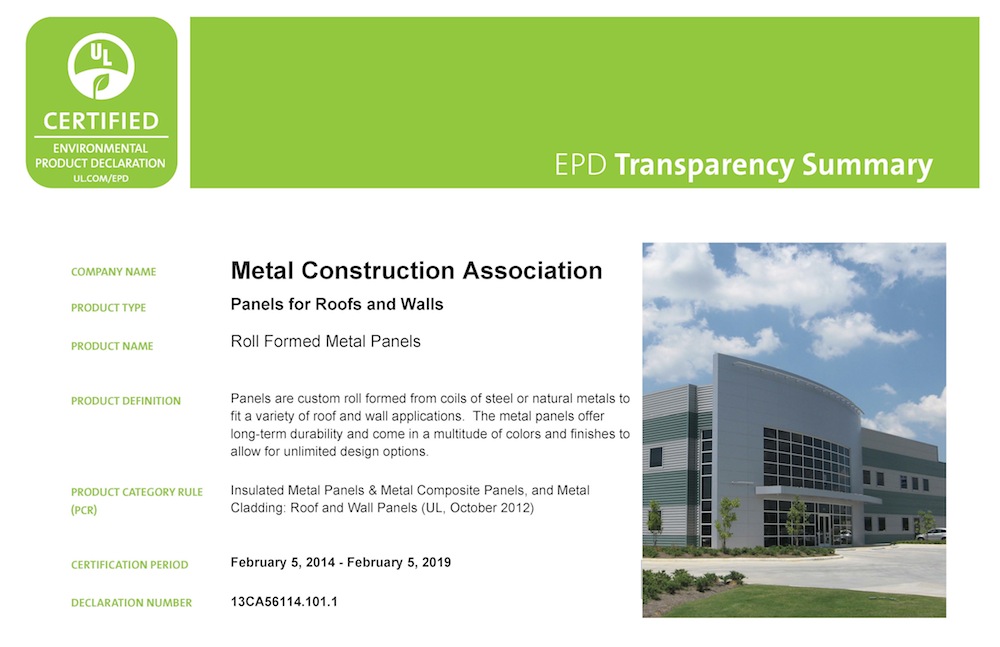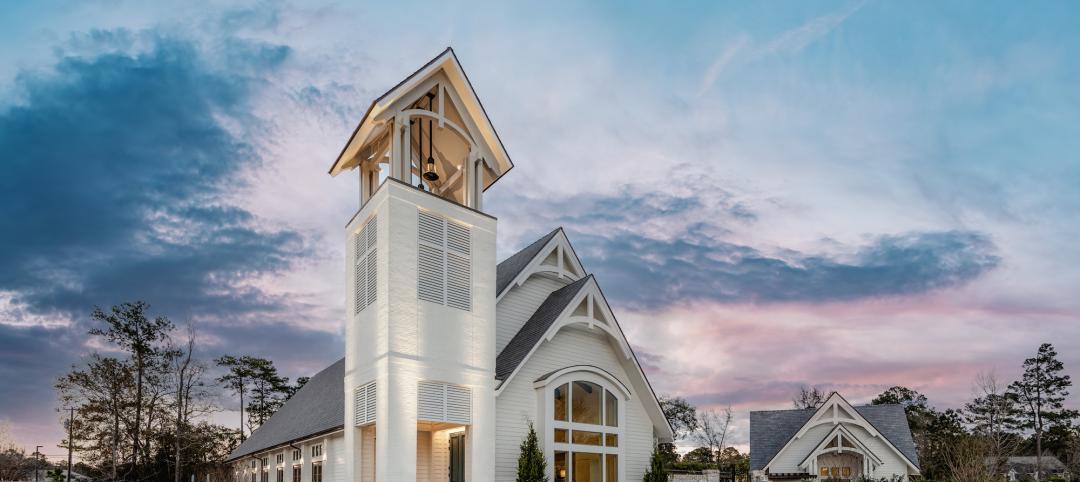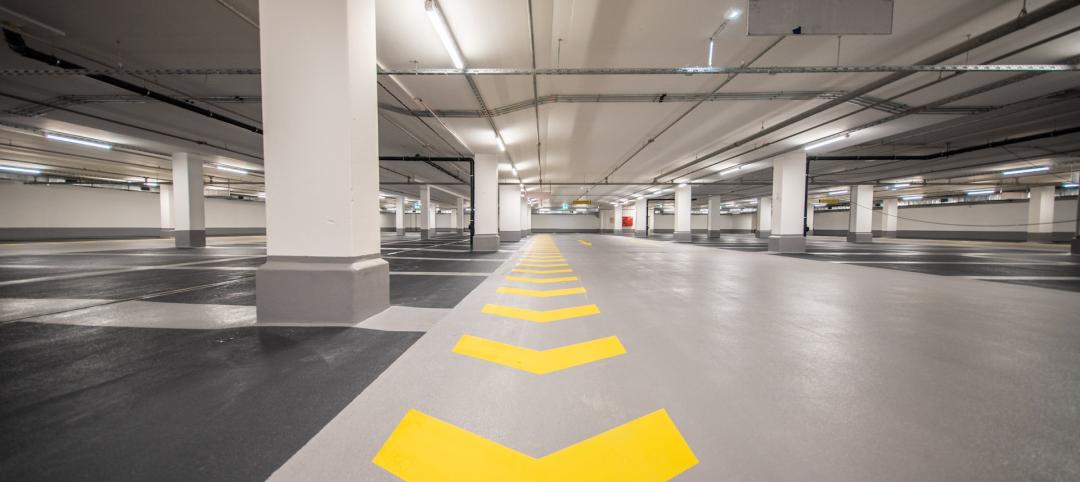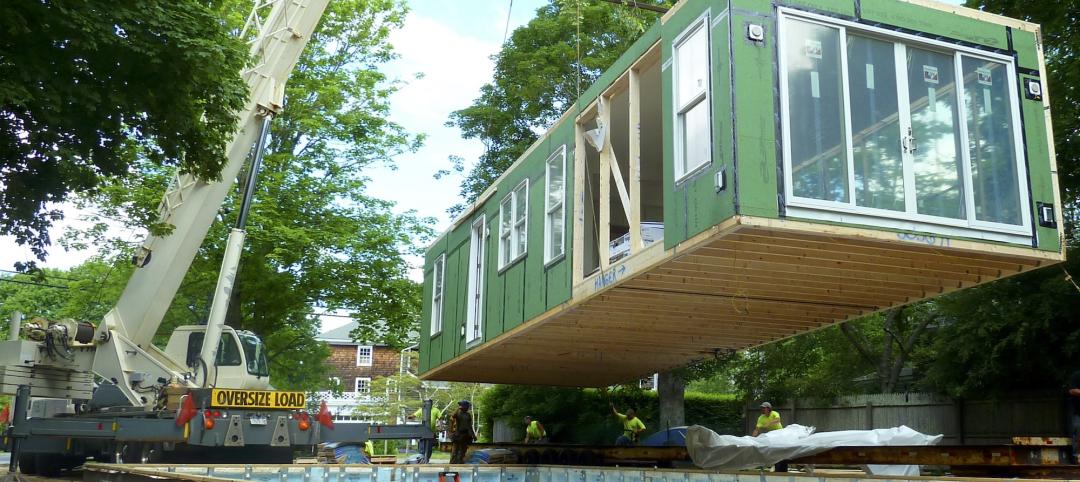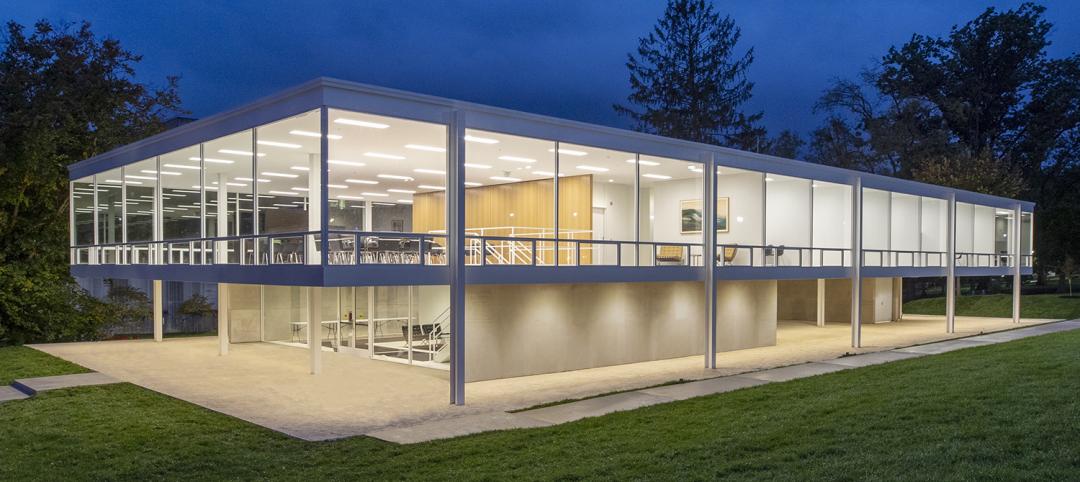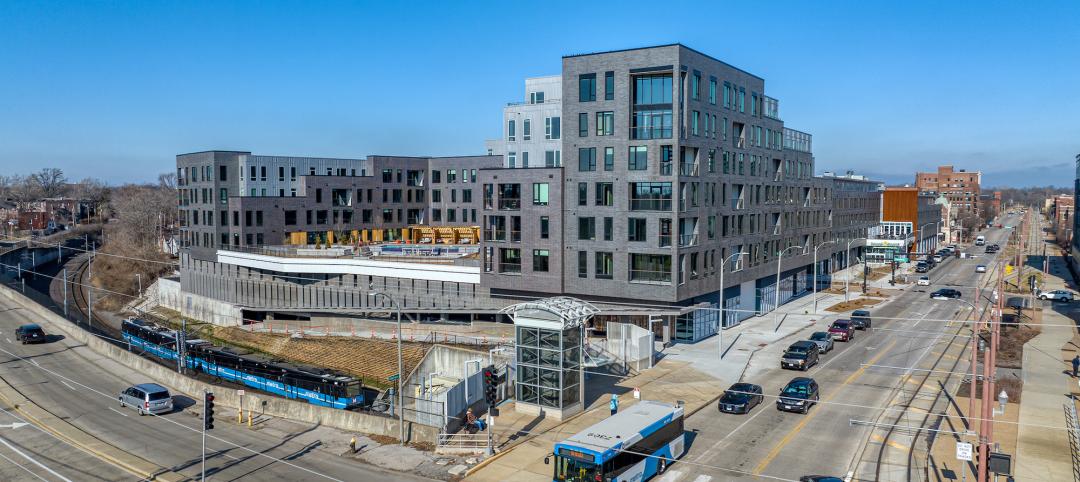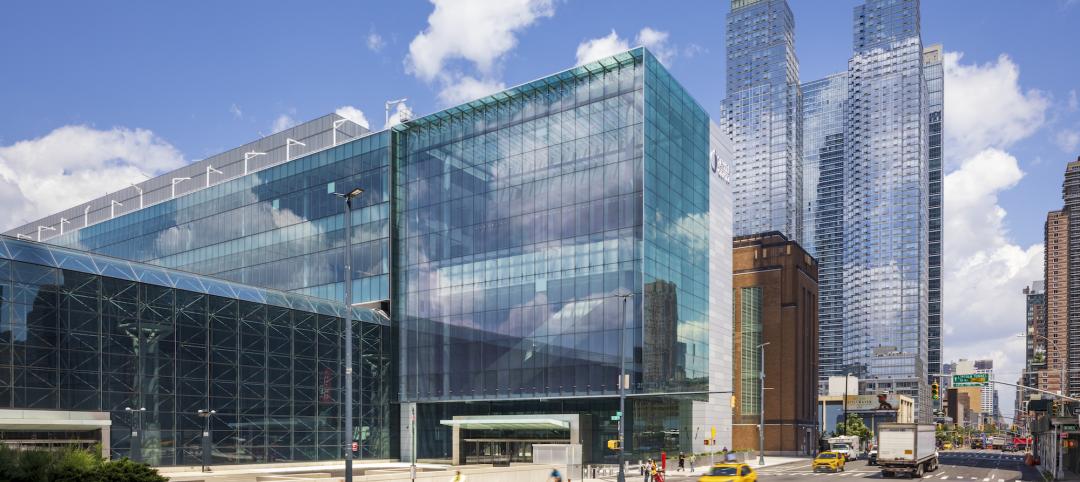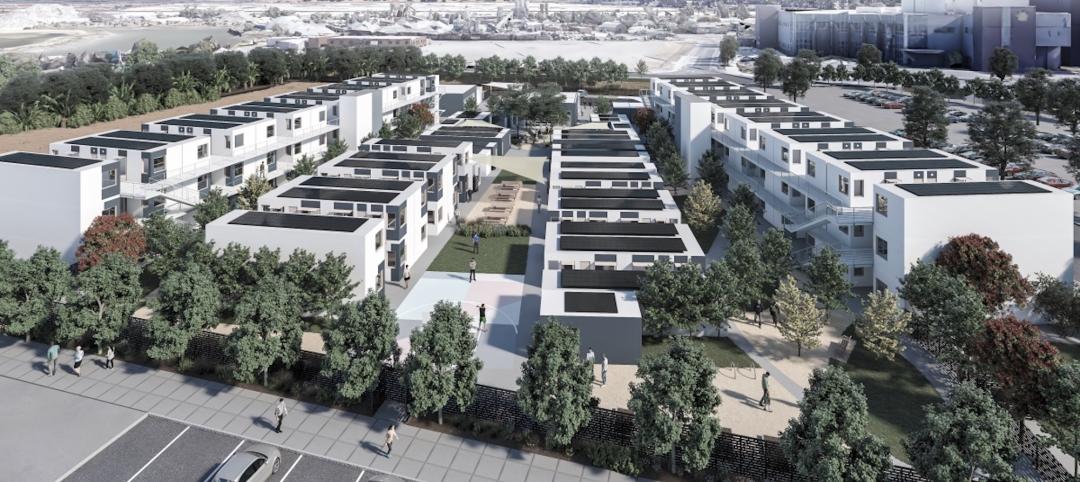Two Environmental Product Declarations (EPD), one for Metal Composite Material Panels and one for Roll Formed Steel Panels for Roofs and Walls, are now available free of charge from the Metal Construction Association (MCA) on its website.
These documents are the second and third EPDs to be released by MCA, an organization of manufacturers and suppliers whose metal wall and roofing components are used in buildings throughout the world. In October 2013, MCA developed an EPD for Insulated Metal Panels.
Environmental Product Declarations provide LCA-based information and details about the environmental impacts of products and assist purchasers and users in making informed comparisons. As more members of the design community use EPDs, which are now included in the new LEED V4 green building rating system, MCA is responding by issuing industry-wide EPDs that report the environmental impact of members' products and related assemblies.
"The way in which an EPD is used depends on what environmental impact categories relate to the architect, project or building owner. It's the same process as when you read a nutrition label on a food item. You look at what's most important to you while someone else will look at what's important to them. With an EPD it depends on what the project team feels is most important," notes Scott Kriner, MCA technical director. He also indicates that even if a project is not aiming for LEED certification, architects may require EPDs as a transparent method to describe the environmental impacts of materials used in a project specification.
MCA's EPDs contain valuable information about product definition, building physics, the basic material and its origin, product manufacture and processing, in-use conditions, life cycle assessment results, and testing results and verifications. Environmental impacts were assessed throughout the lifecycle of metal composite material panels and roll formed panels, including raw material extraction, transportation, manufacturing packaging, use, and disposal at the end of a building's useful life. The product configurations in the EPDs use ranges representative of all types of panels based on specific products from the primary producers that were used in the assessment and testing.
Information in the Metal Composite Material (MCM) EPD was prepared by MCA technical staff and members of MCA's MCM Fabricators Council and MCA's Wall Panel Council who are volunteers representing the leading manufacturers of MCM and companies that provide premium fabricating services for MCM. Originally known as Aluminum Composite Material (ACM), the name has evolved to Metal Composite Material to reflect the addition of other facer metals such as zinc, copper, stainless steel, and titanium.
MCM panels are formed by bonding two metal facer skins to a highly engineered plastic core. The panels can be finished in virtually any color a building owner or architect desires. Zinc, copper and titanium panels are usually installed unfinished, utilizing the benefit of these natural materials to achieve a unique weathered look over time.
Information in the EPD on Roll Formed Steel Panels for Roofs and Walls was prepared by MCA technical staff and members of MCA's Roofing Council and its Wall Panel Council who are volunteers representing the leading manufacturers of metal products used in roof and wall applications.
Roll Formed Panels are custom formed from coils of steel or natural metals to fit a variety of roof and wall applications. The panels can be factory-formed, formed on the jobsite using a mobile roll former, or a combination of both. For decades roll-formed metal wall and roof panels have served building owners and architects as one of the best combinations of economy, service and design. The metal panels offer long-term durability and come in a multitude of colors and finishes to allow for unlimited design options.
The Life Cycle Assessment for both the MCM and Roll Formed products on which the EPDs are based was performed for the MCA by PE International, Boston, MA. All content in the EPD documents has been reviewed by a UL Environment Review Panel and independently verified in accordance with ISO 14025 and ISO 14044.
To obtain a copy of any of the MCA EPDs visit www.metalconstruction.org or contact MCA at 847-375-4718 or mca@metalconstruction.org.
About the Metal Construction Association
The Metal Construction Association brings together a diverse industry for the purpose of expanding the use of metal in construction through marketing, research and technology and education. Companies involved in MCA gain tremendous benefit from association activities that focus on research, codes and standards, market development, and technical programs. MCA's market development efforts increase the use of metal materials in construction through the education of the building and design communities about the benefits of metal.
MCA's next national meeting is the 2014 Summer Meeting, scheduled for June 23-25, 2014 at the Westin O'Hare in Rosemont (Chicago), IL. Please refer to the MCA website www.metalconstruction.org for additional information.
Related Stories
Giants 400 | Feb 6, 2023
2022 Religious Sector Giants: Top architecture, engineering, and construction firms in the U.S. religious facility construction sector
HOK, Parkhill, KPFF, Shawmut Design and Construction, and Wiss, Janney, Elstner head BD+C's rankings of the nation's largest religious facility sector architecture, engineering, and construction firms, as reported in the 2022 Giants 400 Report.
Giants 400 | Feb 6, 2023
2022 Justice Facility Sector Giants: Top architecture, engineering, and construction firms in the U.S. justice facility/public safety sector
Stantec, DLR Group, Turner Construction, STO Building Group, AECOM, and Dewberry top BD+C's rankings of the nation's largest architecture, engineering, and construction firms for justice facility/public safety buildings work, including correctional facilities, fire stations, jails, police stations, and prisons, as reported in the 2022 Giants 400 Report.
Giants 400 | Feb 6, 2023
2022 Parking Structure Giants: Top architecture, engineering, and construction firms in the U.S. parking structure sector
Choate Parking Consultants, Walker Consultants, Kimley-Horn, PCL, and Balfour Beatty top BD+C's rankings of the nation's largest parking structure sector architecture, engineering, and construction firms, as reported in the 2022 Giants 400 Report.
Market Data | Feb 6, 2023
Nonresidential construction spending dips 0.5% in December 2022
National nonresidential construction spending decreased by 0.5% in December, according to an Associated Builders and Contractors analysis of data published today by the U.S. Census Bureau. On a seasonally adjusted annualized basis, nonresidential spending totaled $943.5 billion for the month.
Giants 400 | Feb 3, 2023
Top Workplace/Interior Fitout Architecture, Engineering, and Construction Firms for 2022
Gensler, Interior Architects, AECOM, STO Building Group, and CBRE top the ranking of the nation's largest workplace/interior fitout architecture, engineering, and construction firms, as reported in Building Design+Construction's 2022 Giants 400 Report.
Multifamily Housing | Feb 3, 2023
HUD unveils report to help multifamily housing developers overcome barriers to offsite construction
The U.S. Department of Housing and Urban Development, in partnership with the National Institute of Building Sciences and MOD X, has released the Offsite Construction for Housing: Research Roadmap, a strategic report that presents the key knowledge gaps and research needs to overcome the barriers and challenges to offsite construction.
Steel Buildings | Feb 3, 2023
Top 10 structural steel building projects for 2023
A Mies van der Rohe-designed art and architecture school at Indiana University and Morphosis Architects' Orange County Museum of Art in Costa Mesa, Calif., are among 10 projects to win IDEAS² Awards from the American Institute of Steel Construction.
Multifamily Housing | Feb 2, 2023
St. Louis’s first transit-oriented multifamily development opens in historic Skinker DeBaliviere neighborhood
St. Louis’s first major transit-oriented, multi-family development recently opened with 287 apartments available for rent. The $71 million Expo at Forest Park project includes a network of pathways to accommodate many modes of transportation including ride share, the region’s Metro Transit system, a trolley line, pedestrian traffic, automobiles, and bike traffic on the 7-mile St. Vincent Greenway Trail.
Giants 400 | Feb 2, 2023
2022 Convention Center Sector Giants: Top architecture, engineering, and construction firms in the U.S. convention and conference facilities sector
Clark Group, EUA, KPFF, Populous, TVS, and Walter P Moore top BD+C's rankings of the nation's largest convention and conference facilities architecture, engineering, and construction firms, as reported in the 2022 Giants 400 Report.
Multifamily Housing | Feb 1, 2023
Step(1) housing: A new approach to sheltering unhoused people in Redwood City, Calif.
A novel solution to homelessness will open soon in Redwood City, Calif. The compact residential campus employs modular units to create individual sleeping units, most with private bathrooms. The 240 units of housing will be accompanied by shared services and community spaces. Instead of the congregate dorm-style shelters found in many U.S. cities, this approach gives each resident a private, lockable, conditioned sleeping space.


